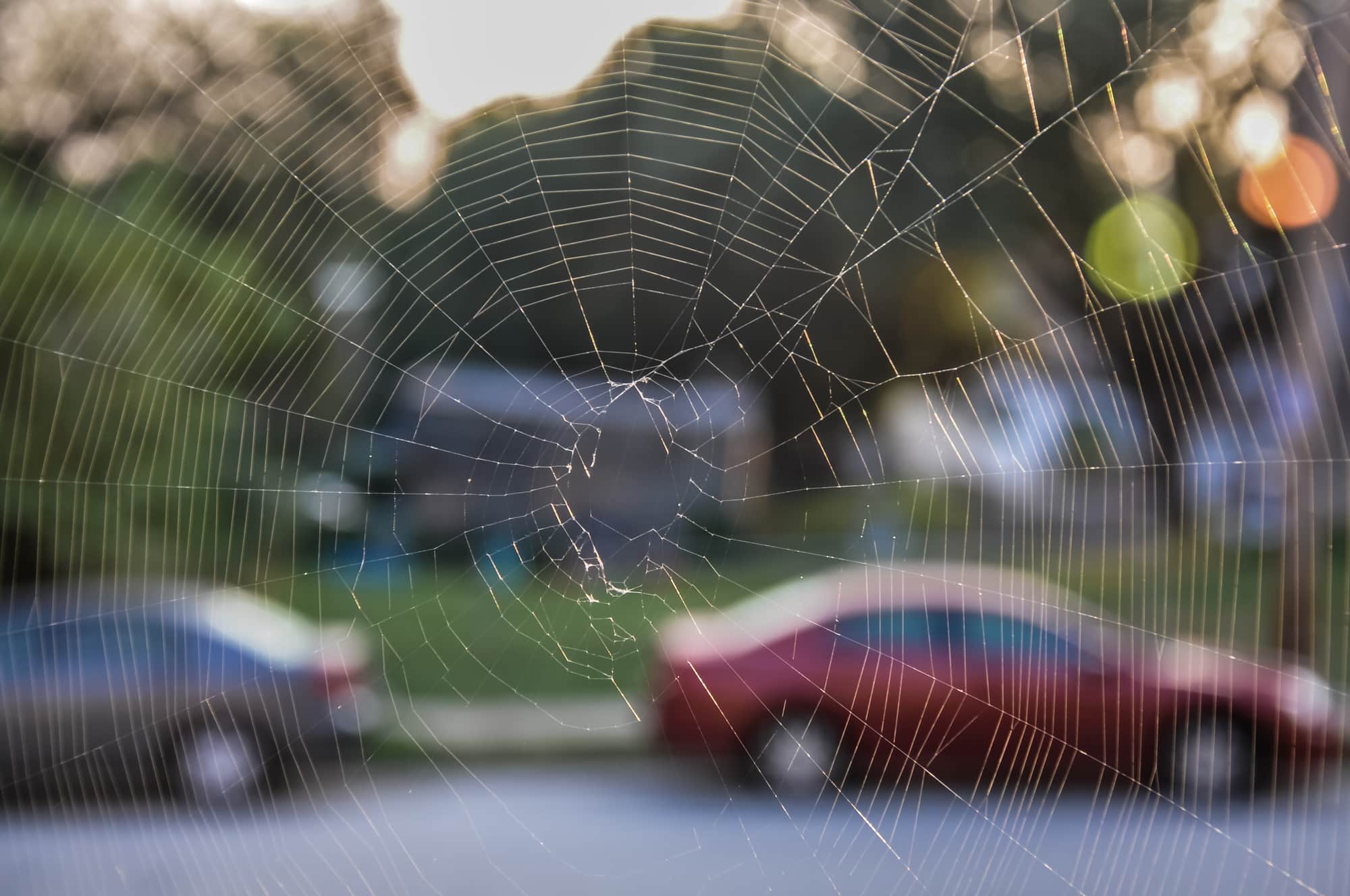Got spider webs? Here are some ways to help get rid of them.

Spiders – also referred to as “arachnids” – have picked up a bad reputation over the years. People associate them with creepy houses, poisonous bites and other unpleasant things. However, with the exception of spiders like black widows and brown recluses, most spiders aren’t dangerous to humans. Some, like the jumping spider, are even downright fascinating.
Nonetheless, spiders spin webs, which can give your home or office an unkempt look and can even be a fire hazard.
How to Remove Spider Webs
Spider webs are pretty easy to remove. All you need is a broom or a vacuum cleaner with a hose attachment. Once you’re armed with one of these cleaning tools, simply remove the spider web. That’s all there is to it.
Of course, sometimes figuring out how to remove spider webs can be a little tricky. For example, you could run into trouble if you’re trying to clean a web off of a popcorn ceiling. Spider silk is both strong and adhesive, making it difficult to extract from the uneven surface of these ceiling types. In this situation, you can wrap duct tape — sticky side facing out — around a paint roller to remove the web. And that’s about as challenging as it gets when it comes to spider web removal. If using a broom, it’s better to gently lift the web off rather than trying to sweep it off.
How to Keep Spiders Away
Remember, most spiders aren’t out to get humans. You’re a lot bigger than they are, so their first instinct will not be to attack. In most cases, spiders will only bite you if you threaten or trap them. This might occur when you do something like reach for a coffee filter and unintentionally stick your hand into the web they’ve spun in the corner of a cupboard.
And spiders are actually beneficial in that they eat a lot of the insects that annoy humans. If you’re dead set on making sure that spider is gone, you can swat it with a shoe or a rolled up newspaper.
However, there is a more humane method you can employ to get rid of non-dangerous spiders. Simply cover the spider with a drinking glass or jar. Slide a piece of paper or cardboard underneath the mouth of your spider “trap.” Then, with cardboard or paper firmly held in place, walk the spider far away from your house or office building and set it free.
How to Help Prevent Spider Webs in the Future
It’s one thing to get rid of spiders and their existing webs, but preventing spider webs from forming in the future is another ball game. Fortunately, there are several easy methods you can use to help keep spiders from returning to your home or office.
- Maintain a regular cleaning schedule. Whether or not you realize it, when you dust or vacuum frequently, you get rid of spiders. Vacuuming is especially important as it both takes care of unsightly spider webs and wipes out spider eggs and nymphs.
- Seal cracks and windows. You won’t have to figure out how to remove spider webs if you don’t have to get rid of spiders in the first place. Stop the problem before it starts by sealing the cracks and windows in your home or office building. Additionally, make sure that window screens are in good repair and fit frames snugly.
- Keep your space organized and clear. Chaotic piles provide a good source of shelter for spiders. To prevent spider webs, make sure your home or office is free of spider-friendly clutter inside and out.
- Turn out the lights. Many insects are attracted to light, and spiders are attracted to the all-you-can eat buffet of insects. Turn off outdoor lights when you’re inside so bugs will buzz off elsewhere and, hopefully, the spiders will follow. If outdoor lighting is a must, try to keep the fixtures and bulbs away from doors. You can also change the frequency of the lights to make it less attractive.
If you’re taking steps to prevent spider webs, but still have to get rid of arachnids more often than you like, it’s probably time to contact a pest control professional so you can customize a prevention plan.
Sources:
http://www.thriftyfun.com/Cleaning-a-Textured-Popcorn-Ceiling.html
http://www.livescience.com/37974-he-surprising-cause-of-most-spider-bites.html



